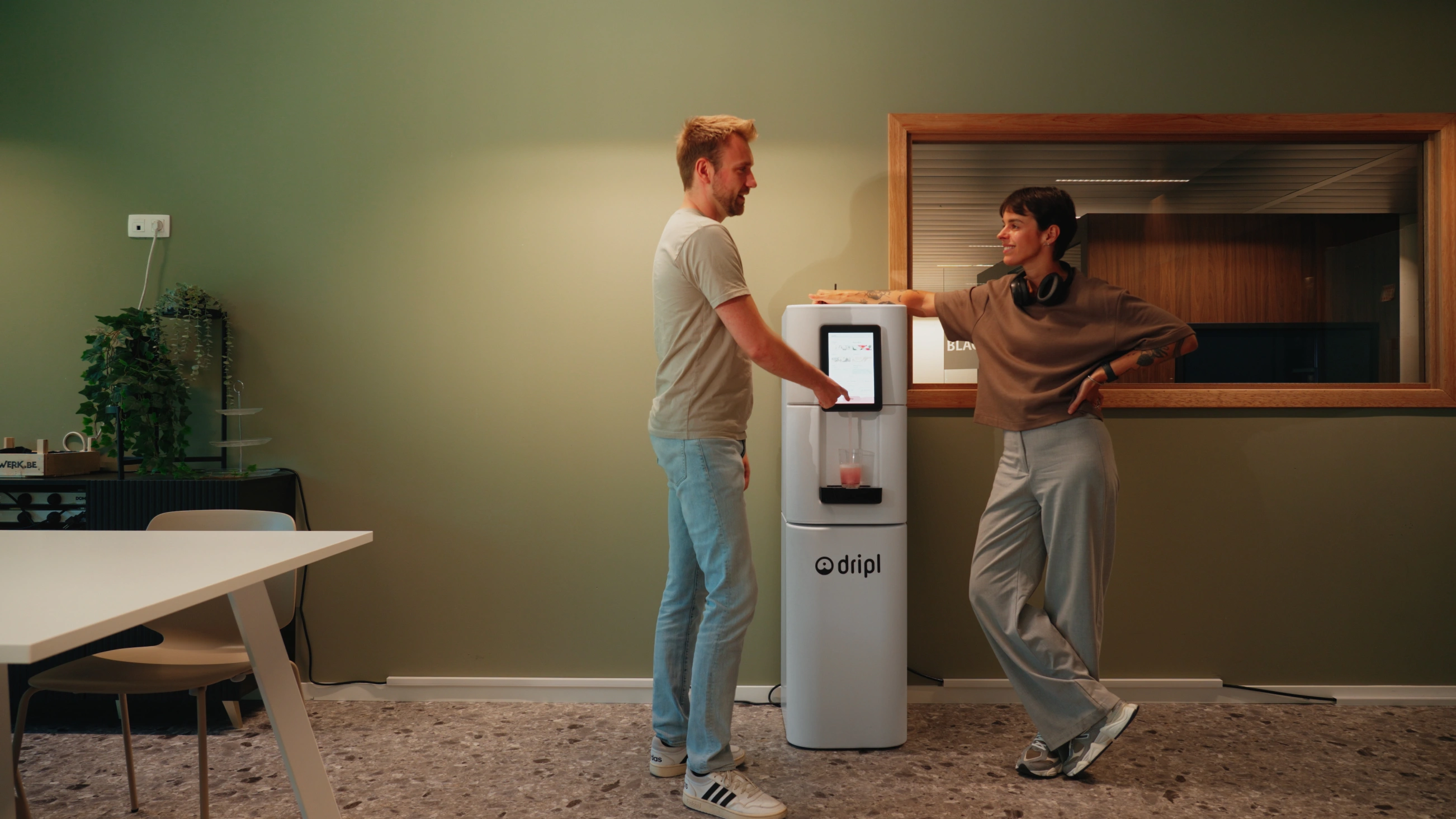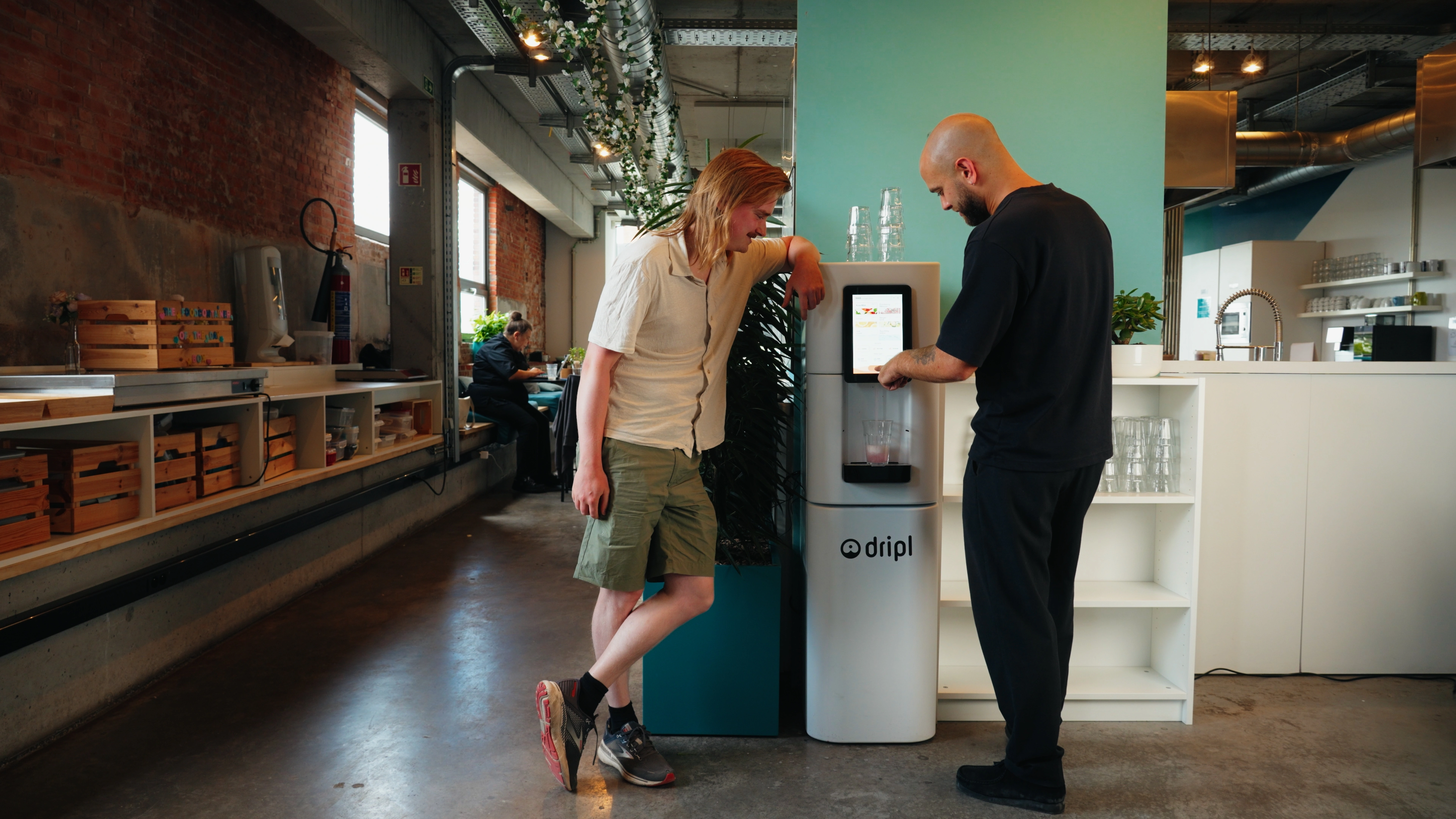All blog posts
The Single Use Plastics Directive in the Netherlands, everything you need to know for your office.

As an office manager or facility manager, you play a crucial role in creating a sustainable and environmentally friendly work environment. One of the key regulations influencing this is the Single-Use Plastics Directive (SUPD) in the Netherlands. This directive was established by the European Union to reduce single-use plastics and promote sustainable alternatives. It's a significant regulation that also has significant implications for your office. Here's everything you need to know.
What is the Single-Use Plastics Directive (SUPD)?
The Single-Use Plastics Directive (SUPD) is a European Union legislative initiative designed to reduce the impact of single-use plastics on the environment. It specifically targets plastic products that are used once and quickly discarded, contributing significantly to plastic pollution worldwide.
The SUPD includes a set of rules and prohibitions regarding certain plastic products. These include bans on plastic cutlery, straws, stirrers, cotton buds, plastic plates and bowls, and certain plastic containers. The purpose of these bans is to reduce the use of these disposable plastic items and switch to more sustainable alternatives that are less harmful to the environment.
In addition to the bans, the SUPD also includes measures to make producers of plastic products more responsible for the environmental impact of their products. This includes, for example, requiring producers to contribute to funding for litter cleanup and raising awareness among consumers about the negative effects of plastic pollution.
The directive also emphasizes the need for recycling and promoting a circular economy. Manufacturers are encouraged to design products that are easier to recycle and to use recycled materials in their production processes. Furthermore, the SUPD promotes the use of alternatives to single-use plastics, such as reusable products and biodegradable materials.
In the Netherlands, the SUPD has been implemented through legislation and policies that obligate businesses and institutions to comply with the guidelines and contribute to the reduction of plastic pollution. As an office manager or facility manager, it is therefore crucial to be aware of the SUPD and to actively take steps to comply with the requirements and contribute to a more sustainable future.
What does this mean for your office?
As an office manager or facility manager, there are several steps you must take to comply with the SUPD directive and promote an environmentally friendly work environment:
1. Reconsider the use of disposable plastic.
One of the first and most important steps is to reconsider the use of single-use plastics in your office. Consider items like plastic cutlery, straws, stirrers, and lunch packaging. Look for more sustainable alternatives like reusable cutlery, glass straws, and recyclable packaging. Encourage employees to use these alternatives and implement policies to minimize single-use plastic.
2. Implement the deposit system
If your office offers water and soft drinks in plastic bottles, you should implement a deposit system. This system encourages employees to return the bottles for recycling, which helps reduce plastic waste and raises awareness about recycling.
3. Awareness and training
Organize information campaigns and training sessions for employees about plastic pollution, sustainability, and the importance of reducing plastic use. Make employees aware of the SUPD directive and how they can contribute to a more environmentally friendly work environment.
4. Collaboration with suppliers
Collaborate with suppliers to source more sustainable products and packaging. Ensure your suppliers comply with the SUPD directive and offer environmentally friendly options. Encourage the use of recycled materials and products with a lower environmental impact.
5. Monitor and evaluate
Regularly monitor your office's performance in terms of plastic reduction and sustainability. Evaluate single-use plastic use, the effectiveness of the deposit system, and employee engagement in sustainable practices. Adjust your policies and initiatives as needed to achieve further improvements.
The difference between SUPD, deposit and plastic surcharges
It's complicated all these directives, but important to understand the distinction between the Single-Use Plastics Directive (SUPD), deposits and plastic surcharges. The SUPD is an EU directive aimed at reducing single-use plastics, while deposits are a system that encourages consumers to return plastic containers for recycling. Plastic surcharges are financial incentives that discourage the use of plastic products and encourage recycling. While deposits and plastic surcharges are not directly part of SUPD, they can be used as complementary measures to reduce plastic pollution and promote sustainability.
What impact that plastic surcharge will have on your office, you can read all about it here.
Conclusion
The Single-Use Plastics Directive (SUPD) provides a framework for reducing plastic pollution and promoting sustainability in your office environment. As an office manager or facility manager, it's your responsibility to understand and implement this directive. With the right steps and the involvement of your colleagues, you can have an immensely positive impact on the environment and future generations.
All blog posts
The Single Use Plastics Directive in the Netherlands, everything you need to know for your office.

As an office manager or facility manager, you play a crucial role in creating a sustainable and environmentally friendly work environment. One of the key regulations influencing this is the Single-Use Plastics Directive (SUPD) in the Netherlands. This directive was established by the European Union to reduce single-use plastics and promote sustainable alternatives. It's a significant regulation that also has significant implications for your office. Here's everything you need to know.
What is the Single-Use Plastics Directive (SUPD)?
The Single-Use Plastics Directive (SUPD) is a European Union legislative initiative designed to reduce the impact of single-use plastics on the environment. It specifically targets plastic products that are used once and quickly discarded, contributing significantly to plastic pollution worldwide.
The SUPD includes a set of rules and prohibitions regarding certain plastic products. These include bans on plastic cutlery, straws, stirrers, cotton buds, plastic plates and bowls, and certain plastic containers. The purpose of these bans is to reduce the use of these disposable plastic items and switch to more sustainable alternatives that are less harmful to the environment.
In addition to the bans, the SUPD also includes measures to make producers of plastic products more responsible for the environmental impact of their products. This includes, for example, requiring producers to contribute to funding for litter cleanup and raising awareness among consumers about the negative effects of plastic pollution.
The directive also emphasizes the need for recycling and promoting a circular economy. Manufacturers are encouraged to design products that are easier to recycle and to use recycled materials in their production processes. Furthermore, the SUPD promotes the use of alternatives to single-use plastics, such as reusable products and biodegradable materials.
In the Netherlands, the SUPD has been implemented through legislation and policies that obligate businesses and institutions to comply with the guidelines and contribute to the reduction of plastic pollution. As an office manager or facility manager, it is therefore crucial to be aware of the SUPD and to actively take steps to comply with the requirements and contribute to a more sustainable future.
What does this mean for your office?
As an office manager or facility manager, there are several steps you must take to comply with the SUPD directive and promote an environmentally friendly work environment:
1. Reconsider the use of disposable plastic.
One of the first and most important steps is to reconsider the use of single-use plastics in your office. Consider items like plastic cutlery, straws, stirrers, and lunch packaging. Look for more sustainable alternatives like reusable cutlery, glass straws, and recyclable packaging. Encourage employees to use these alternatives and implement policies to minimize single-use plastic.
2. Implement the deposit system
If your office offers water and soft drinks in plastic bottles, you should implement a deposit system. This system encourages employees to return the bottles for recycling, which helps reduce plastic waste and raises awareness about recycling.
3. Awareness and training
Organize information campaigns and training sessions for employees about plastic pollution, sustainability, and the importance of reducing plastic use. Make employees aware of the SUPD directive and how they can contribute to a more environmentally friendly work environment.
4. Collaboration with suppliers
Collaborate with suppliers to source more sustainable products and packaging. Ensure your suppliers comply with the SUPD directive and offer environmentally friendly options. Encourage the use of recycled materials and products with a lower environmental impact.
5. Monitor and evaluate
Regularly monitor your office's performance in terms of plastic reduction and sustainability. Evaluate single-use plastic use, the effectiveness of the deposit system, and employee engagement in sustainable practices. Adjust your policies and initiatives as needed to achieve further improvements.
The difference between SUPD, deposit and plastic surcharges
It's complicated all these directives, but important to understand the distinction between the Single-Use Plastics Directive (SUPD), deposits and plastic surcharges. The SUPD is an EU directive aimed at reducing single-use plastics, while deposits are a system that encourages consumers to return plastic containers for recycling. Plastic surcharges are financial incentives that discourage the use of plastic products and encourage recycling. While deposits and plastic surcharges are not directly part of SUPD, they can be used as complementary measures to reduce plastic pollution and promote sustainability.
What impact that plastic surcharge will have on your office, you can read all about it here.
Conclusion
The Single-Use Plastics Directive (SUPD) provides a framework for reducing plastic pollution and promoting sustainability in your office environment. As an office manager or facility manager, it's your responsibility to understand and implement this directive. With the right steps and the involvement of your colleagues, you can have an immensely positive impact on the environment and future generations.
FAQs
Get your free quote
Get your personalised quote today. We’ll get back to you soon.




-min.png)